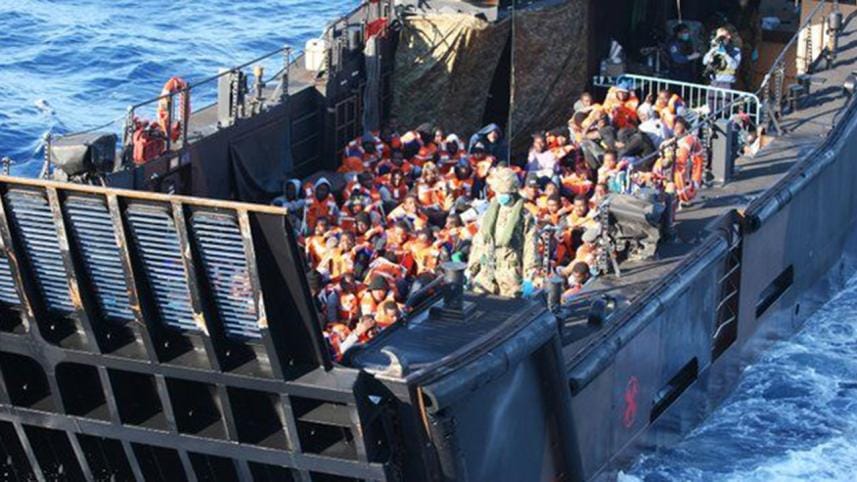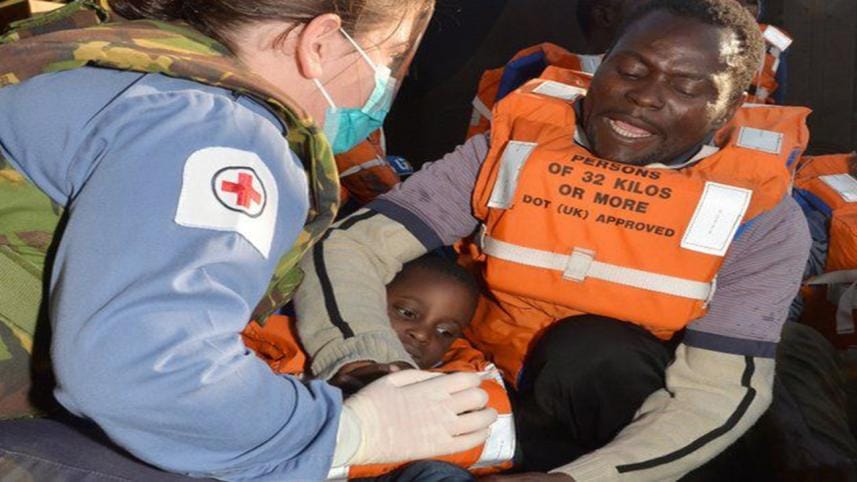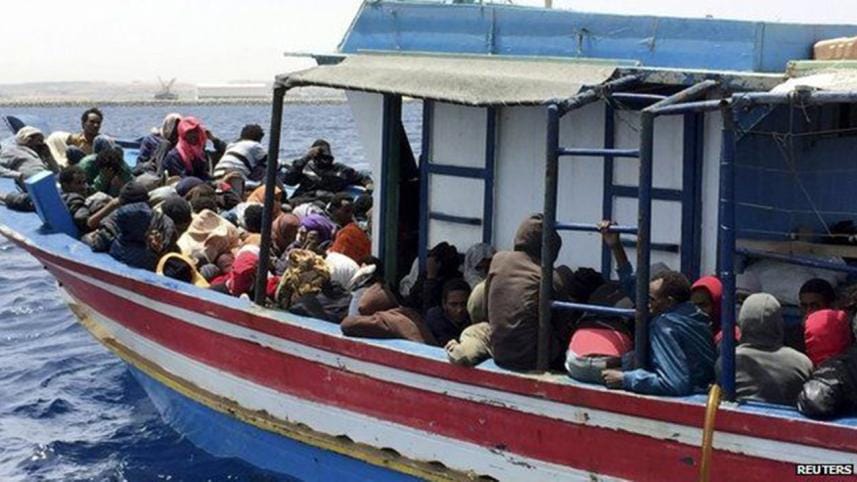EU plan to take 20,000 refugees

The European Commission has unveiled a new blueprint for dealing with the EU's migration crisis, including a controversial plan for national quotas.
The EU aims to bring 20,000 refugees to Europe in the next two years, as part of the plan, at a cost of €50m (£36m).
The Commission is urging EU states to share the burden of processing asylum claims. Italy and Greece, facing a migrant surge, are struggling to cope.
Under EU law the UK, Ireland and Denmark are exempt from the quota plan.
There is pressure for tougher EU action to send economic migrants back home.
Military option
The EU is considering naval action in the Mediterranean to intercept boats used to traffic migrants from North Africa, with Libya a particular hotspot.
But EU foreign policy chief Federica Mogherini said concrete military measures would have to be decided on Monday by EU foreign and defence ministers.


Any military strike against human traffickers would require UN Security Council authorisation, the EU says.
At a news conference in Brussels, Mogherini called the migration problem in the Mediterranean "unprecedented" and "dramatic".
More than 1,800 migrants have died at sea this year trying to reach Italy - a sharp rise on last year's corresponding figures.
The EU will step up co-operation with officials in war-torn Libya, she said, to curb the flow of migrant boats. More EU experts will also be sent to Agadez in northern Niger, West Africa, which has become a hub for the trafficking of Africans to Europe.
The UK says the EU should focus more on fighting the traffickers who exploit migrants, put their lives at risk, and fuel the influx into southern Europe.
The Commission's "European Agenda on Migration" consists of policy guidelines that would have to get approval from a majority of EU governments to become law.
The proposed quota system for distributing migrants already in European countries is based on key data such as GDP, unemployment figures and national population.
The Commission calculates that Germany would take the largest number - 18.4% - followed by France (14%), Italy (11.8%) and Spain (9%).
The new mechanism is called a "distribution key". It is to be launched on a temporary basis by the end of this month, with a permanent plan to follow by the end of this year.
France, Germany, Italy and some other countries back the Commission's quota proposal.
UK objections
Mogherini rebutted a suggestion by UK Home Secretary Theresa May that EU policy would encourage more would-be migrants to make the dangerous journey across the Mediterranean.
Writing in the Times newspaper, May said she disagreed with Mogherini's recent comments - in a speech at the UN - that no migrants intercepted at sea should be sent back against their will.
But a representative for Mogherini said those comments referred specifically to those seeking asylum - and not to economic migrants.
Presenting the new EU blueprint to journalists, Commission Vice-President Frans Timmermans said May "can rest assured" that there would be no open-door policy for migrants.
"If people don't have a right to asylum they should be sent back as swiftly as possible - we do agree... Return is an integral part of our plan, a cornerstone," he said.
But he admitted that many failed asylum seekers had managed to remain in the EU.
"We have been very limited in our success to actually take people back who don't have the right to asylum," he said.
 For all latest news, follow The Daily Star's Google News channel.
For all latest news, follow The Daily Star's Google News channel.
Comments